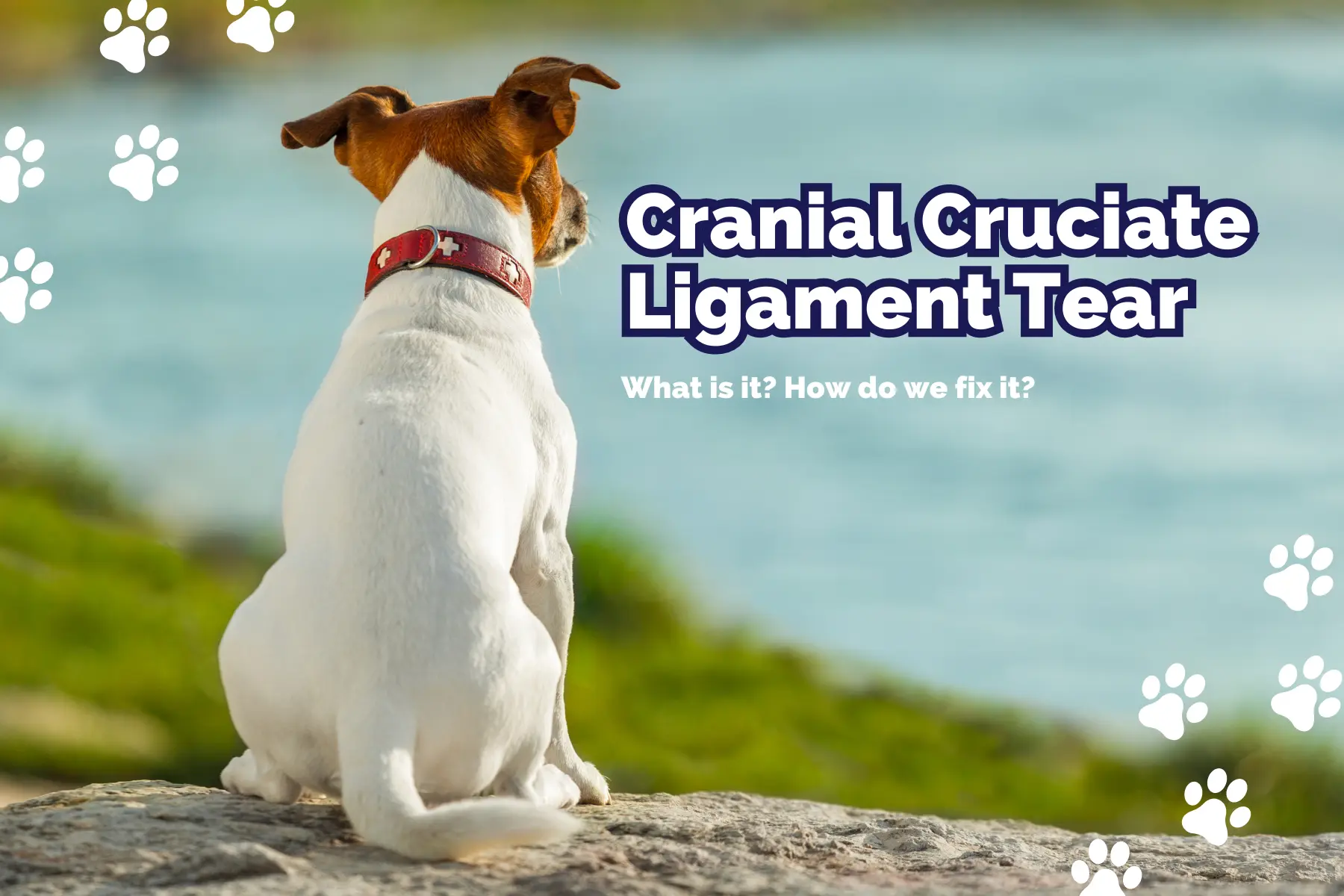
Article by Diana G.
You just went to the vet because you noticed Fluffy has been limping ever since she jumped off the couch…
And after a few tests, the veterinarian tells you she has a CCL tear and will need TPLO surgery to fix it. And the surgery is going to cost in the thousands range.
Woah.
That’s a lot of acronyms, and a lot of cost. Let’s break this down so you have a better understanding of what a “CCL” tear is, why a “TPLO” surgery from a board certified surgeon is the best course of action, and what you can do to be financially prepared.
What is a CCL Tear?
A CCL tear is a cranial cruciate ligament tear. The CCL is very similar to what humans have as the “ACL.” It serves the same function, as a ligament that prevents the tibia from shifting forward from the femur. It also prevents internal rotation and hyper extension.
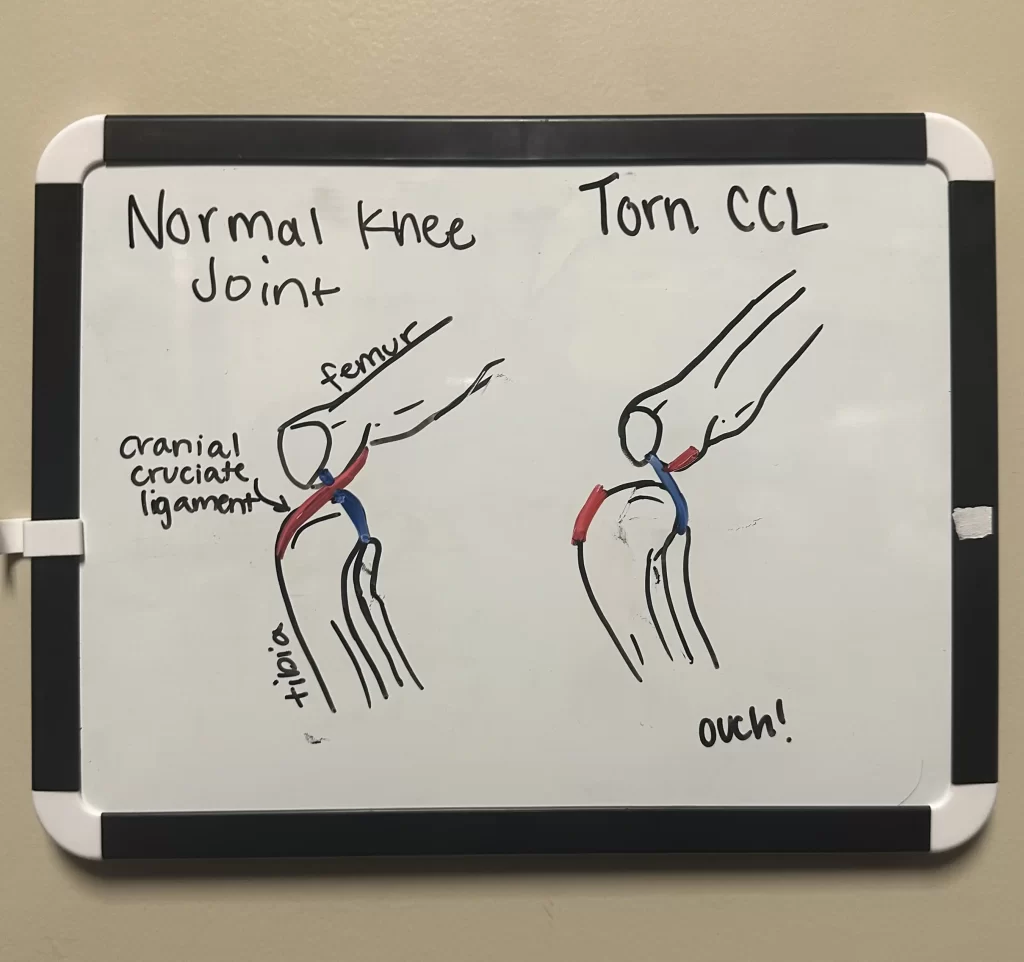
Signs of a Torn CCL:
When your dog tears their CCL, which is not uncommon especially in younger more active dogs, they will usually be limping as their primary sign they are experiencing pain. They may also be showing “toe tapping lameness” which essentially means they won’t put the injured leg’s paw on the ground if they can avoid it, and when standing still they are tapping the ground.
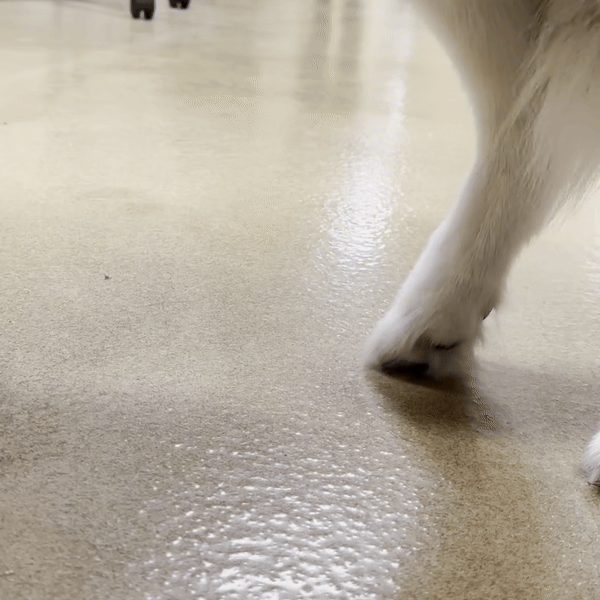
Diagnosing a CCL Tear
When conducting an orthopedic exam on your pet, the veterinarian will try to find the problem area by gently moving around their joints and feeling for abnormalities. Veterinarians are reading the pet’s body behavior for clues that they may be feeling discomfort in a certain area, through behaviors like lip licking.
They are also looking for abnormal motion. When the veterinarian has determined that the problem area is the patient’s knee, they will do a few hands-on tests, including a forward cranial drawer motion test. This test is essentially done by holding on to the femur and pushing the tibia to the front. If the tibia is able to move in that way, that indicates there is a problem in the cranial cruciate ligament, as one of the main functions of the CCL is to prevent that from happening.
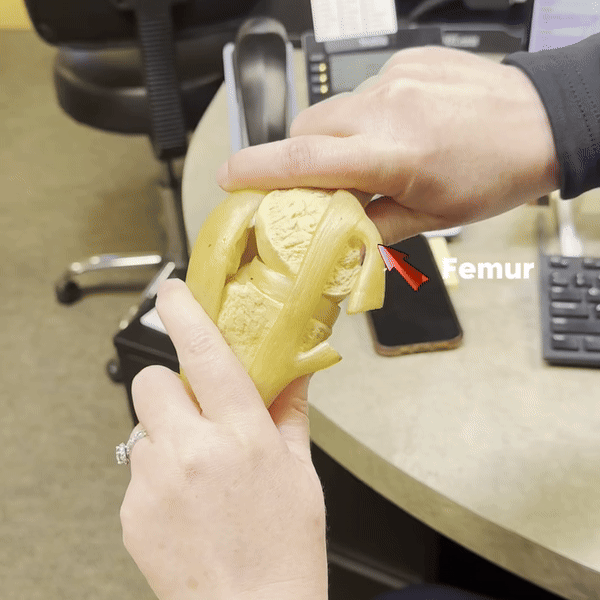
When a veterinarian becomes suspicious of a CCL tear with the information gained from these orthopedic tests, they may order X-Rays. They are looking for evidence of swelling in the joint and cranial translation of the tibia.
If you’d like to watch our Dr. Benson read an X-Ray that was positive for a CCL Tear, watch this video!
Treatment
If the pet is confirmed to have a CCL tear, the next step would be a Tibial Plateau Leveling Osteotomy (TPLO) surgery done by a board certified surgeon to re stabilize the knee. Getting this surgery is the gold standard of care as it is the quickest way to get your pet to a normal, pain-free gait and minimize the progression of arthritis in the future. This is one of the most common orthopedic surgeries that they do.
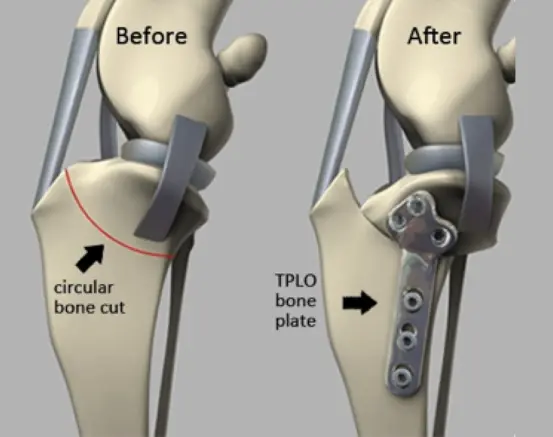
Image obtained from Dogwood Veterinary Hospital
After surgery, pet parents will help their pet with very simple physical therapy. You can watch our TPLO Surgery After Care Video to learn how to do so. Your veterinary care team will go over how long you will need to do physical therapy for your pet after surgery.
All patients with CCL tears will get arthritis in the future unfortunately, but patients who get TPLO surgery have the best chance at minimizing the progression of the arthritis. That is why we also recommend all pets with CCL tears to use Adequan, which is the only drug that has ever been shown to slow down the progression of arthritis. It is a naturally derived, anti-inflammatory, safe drug with an 85% success rate in treating osteoarthritis.
As a hospital that firmly believes in integrative medicine, we also offer nutraceuticals to help minimize the progression of arthritis, specifically Dasuquin (which uses glucosamine) would be a good supplement for pets with CCL tears to take. CCL tear patients would also benefit from cold laser therapy, and acupuncture, which we provide at our hospital.
Risk Factors
Any pet, cat or dog, can tear their CCL. It’s more common to see in younger patients, as they are a bit more rambunctious, but it truly could happen to any pet. Unfortunately, it’s also common for pets who have torn one CCL… to tear their other CCL. There is not a lot you can do as a pet parent to prevent this from happening- as just your pet getting the zoomies and jumping off the couch the wrong way could result in a CCL tear.
Be ready for anything: Pet Insurance!
Due to the expertise, tools, and medical facility required to carry out this advanced surgical procedure we understand it can be an immense financial burden. Which brings us to why…
We recommend getting pet insurance for your pet, and starting them as early as possible. With many pet insurances this surgery would be covered, but pet insurance will not cover pre-existing conditions. The sooner you get them covered, the bigger the safety net you will have. Check out www.petinsurancereview.com to find a plan that works best for you. Having pet insurance is the best way to ensure you are financially prepared in times like this.
Hopefully this article was helpful for you in dissecting exactly what a CCL tear is and what you as a pet parent can do to be prepared. If you see your dog is limping and would like to get seen by a veterinarian, our hospital is located in Mission Viejo, CA and we are open Monday through Saturday. Give us a call at 949-768-1313 to book an appointment.
“We’re Taking Care of Your Babies!”
What Makes us the Best for your Pets?
- Vaccinations
- Integrative Medicine
- Pharmacy
- Surgical Care
- Diagnostic Imaging
- Dentistry
- Pet Boarding
- Grooming
- Laboratory Facilities
About The Author
Contact Us
Call (949) 768-1313
Fax (949) 768-5759
Address
25800 Jeronimo Road., Suite 100
Mission Viejo, CA 92691

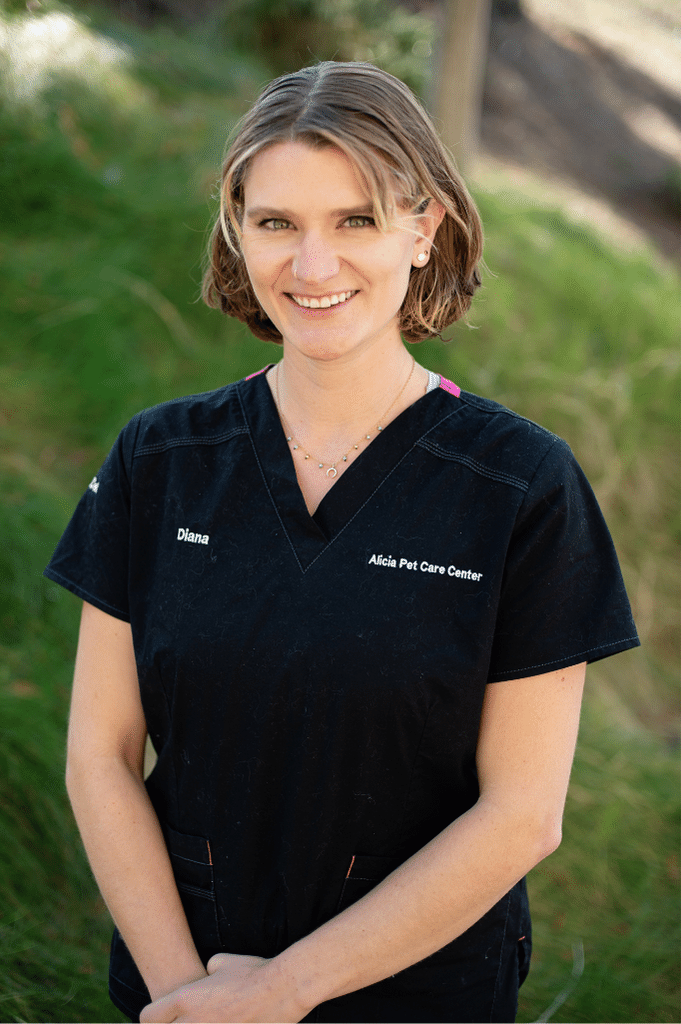

Recent Comments